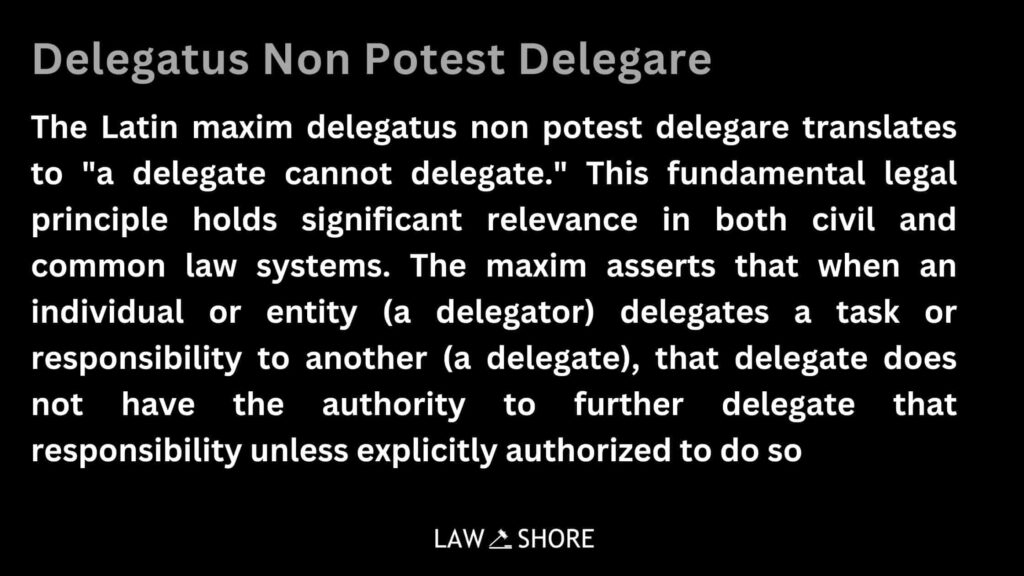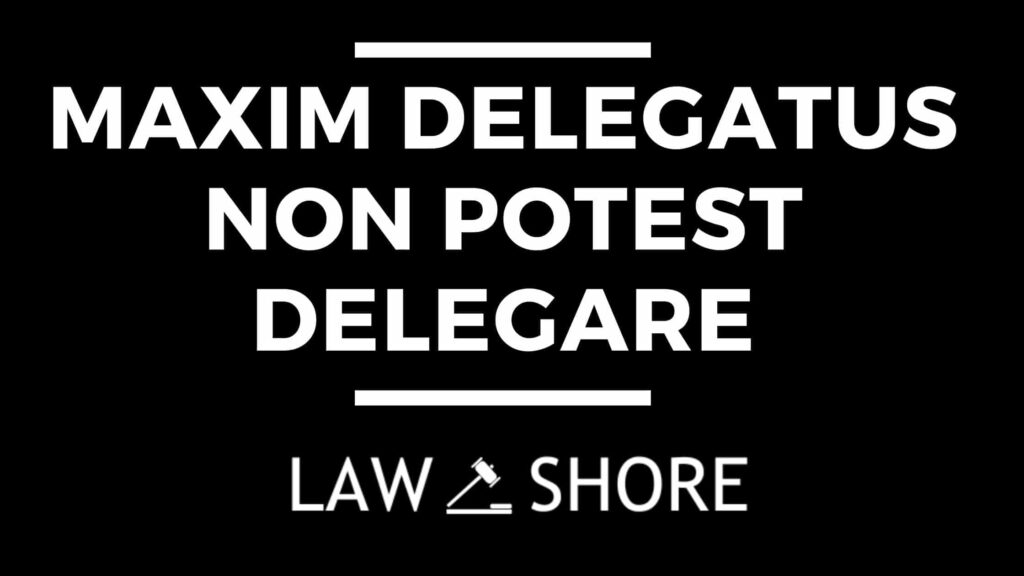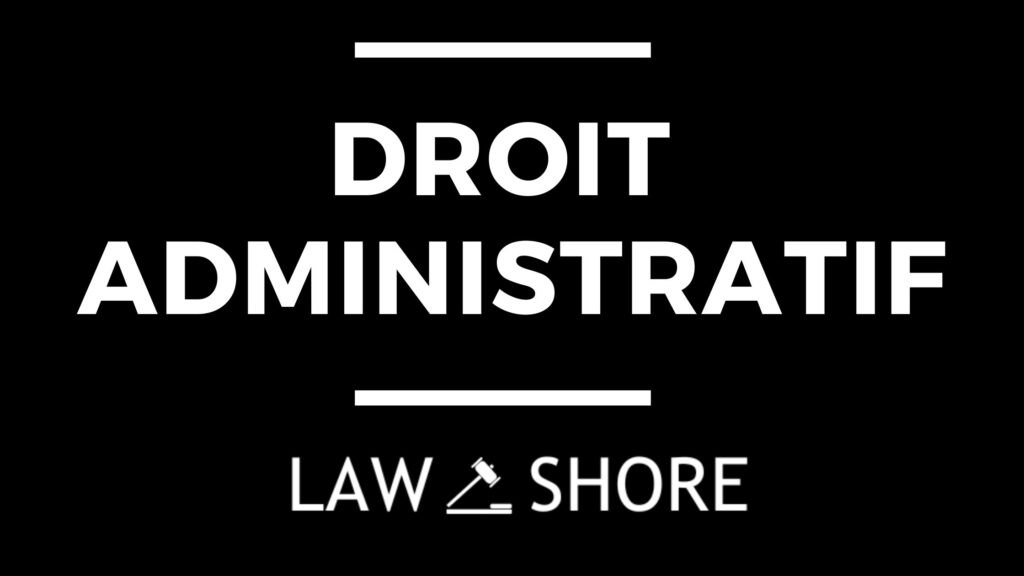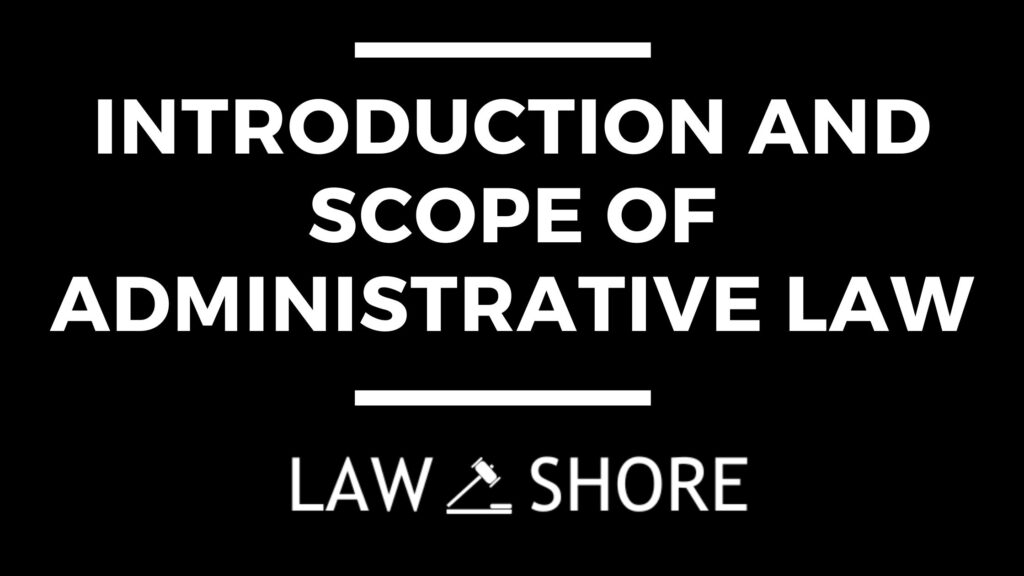Maxim Delegatus Non Potest Delegare
Table of Contents
ToggleThe Latin maxim delegatus non potest delegare translates to “a delegate cannot delegate.” This fundamental legal principle holds significant relevance in both civil and common law systems. The maxim asserts that when an individual or entity (a delegator) delegates a task or responsibility to another (a delegate), that delegate does not have the authority to further delegate that responsibility unless explicitly authorized to do so. This rule serves as a safeguard to ensure that delegated duties are carried out by the designated delegate and are not further passed on, potentially diluting responsibility and accountability.
Origin of the Maxim Delegatus Non Potest Delegare

The maxim delegatus non potest delegare finds its origins in Roman law, where it was recognized as a principle that governed the delegation of authority. In the context of Roman law, delegation referred to the transfer of authority from one party to another to perform a task. The essence of the maxim is rooted in the principle of personal responsibility — the person delegating a task should not relinquish their accountability by transferring it to someone else. It was later adopted and formalized into modern legal systems as a part of contract law and agency law.
Key Features of Delegatus Non Potest Delegare
Personal Responsibility:
The maxim places emphasis on personal responsibility. When a task is delegated, the delegator must trust the delegate to perform the duties as specified. However, the delegator remains accountable for the execution of the task, and the delegate cannot pass this responsibility to another.
Illustration:
Imagine you are the owner of a construction company, and you hire a contractor to build a house for a client. If the contractor delegates this task to another subcontractor without your approval, this goes against the principle of delegatus non potest delegare, as the contractor remains responsible for completing the project.
Exclusivity of Authority:
The person or entity entrusted with the responsibility has exclusive authority to carry out the task unless explicitly stated otherwise in the agreement. The delegate does not have the right to transfer the responsibility to another without the express consent of the delegator.
Illustration:
If a company hires a manager to oversee operations, the manager cannot hire another person to make key decisions on behalf of the company without prior consent. The responsibility for making those decisions lies exclusively with the manager unless authorized.
Exception for Authorized Delegation:
While the general rule prohibits further delegation, there are exceptions. If the delegator expressly allows the delegate to sub-delegate the responsibility, this would be permissible. For instance, in cases where the task involves routine or procedural matters, the delegator may explicitly permit the delegate to engage others in carrying out certain parts of the task.
Illustration:
A lawyer is tasked with drafting a legal document. The lawyer might be permitted to delegate the task of researching legal precedents to a junior associate, but this is only allowed if the client has agreed or if the lawyer has explicit authority to do so. Without such permission, the lawyer cannot further delegate the responsibility.
Applicability in Agency and Contracts:
This maxim primarily finds application in the realm of agency and contract law. In an agency relationship, for instance, a principal appoints an agent to act on their behalf. The agent, unless permitted by the principal, cannot delegate the principal’s instructions to another agent.
Illustration:
If you are a company director (the principal), and you appoint a manager (the agent) to negotiate a contract with a supplier, the manager cannot delegate this responsibility to another manager without your permission, as it was given directly to them.
Legal Interpretation of Delegatus Non Potest Delegare
The legal interpretation of delegatus non potest delegare serves as a guiding principle for cases involving agency, contracts, and trust law. Courts interpret this maxim in a manner that emphasizes the need for accountability and personal authority. Here are some points of legal interpretation:
Delegation in Agency Law:
Under agency law, an agent is typically required to act within the scope of the authority granted by the principal. If the agent further delegates these responsibilities without express permission, such delegation could be deemed invalid. In certain situations, courts may hold the agent liable for the consequences of unauthorized delegation.
Delegation in Contracts:
When parties enter into a contract, they agree to fulfill certain obligations. The maxim ensures that a party cannot pass off these obligations to someone else without prior consent, unless such delegation is explicitly outlined in the contract terms. For instance, a contractor hired for a construction project cannot delegate the work to another subcontractor without the client’s consent.
Trust and Fiduciary Duty:
In fiduciary relationships, such as that between a trustee and a beneficiary, the trustee is bound by a fiduciary duty to act in the best interests of the beneficiary. The trustee cannot delegate their responsibility to another person unless authorized. This interpretation safeguards the principle of trust and the idea that one’s fiduciary duty cannot be passed along.
Illustration:
If a trustee is managing a trust fund on behalf of a beneficiary, the trustee cannot delegate the task of managing investments to another person unless the trust agreement allows for it. The trustee is accountable for how the fund is managed.
Case Laws Illustrating Delegatus Non Potest Delegare
Several case laws help in understanding the practical application of the maxim delegatus non potest delegare:
Harris v. Nickerson (1873):
In this case, the court held that an agent cannot delegate their authority to another unless expressly authorized by the principal. Harris, who was acting as an agent for Nickerson, attempted to delegate certain duties to a third party. The court ruled that such delegation was invalid as Harris had no express permission from Nickerson to sub-delegate the authority.
Illustration:
Suppose Harris, as an agent for Nickerson, was responsible for purchasing goods. Without Nickerson’s approval, Harris passed this responsibility on to a third party. The court ruled that Harris’ action violated the maxim delegatus non potest delegare, and Harris was held accountable.
Gulf Oil Corp. v. The First National Bank of Houston (1976):
This case dealt with the issue of whether a fiduciary could delegate their duties. The court emphasized that a fiduciary cannot delegate their duty to act in the best interest of the beneficiary unless there is an explicit provision or consent allowing such delegation. The ruling reinforced the legal interpretation of the maxim in the context of fiduciary responsibility.
Keenan v. Hamilton (1926):
In this case, the court addressed the issue of contract delegation. Keenan had contracted Hamilton to provide certain services. However, Hamilton attempted to delegate his duties to a third party without Keenan’s consent. The court held that Hamilton’s actions were a violation of the principle delegatus non potest delegare, and the contract remained with Hamilton, as the original party responsible for the task.
R v. DPP (1996):
This case highlighted the criminal law interpretation of the maxim, where the court emphasized that delegation of duties in legal matters such as criminal liability was not permissible. The defendant argued that he had delegated the duty of care to others. The court ruled that criminal responsibility could not be delegated and the individual remained accountable for the actions under his direct control.
Illustration:
In a scenario where an employer assigns an employee the task of ensuring workplace safety, the employee cannot pass this duty onto another employee without facing consequences if an accident occurs. The employee remains criminally responsible for their own actions in relation to the task.
Conclusion
The maxim delegatus non potest delegare encapsulates a fundamental legal principle centered on responsibility and accountability. It ensures that when authority is delegated, the responsibility remains with the original delegate unless expressly authorized to pass it on. This principle is crucial in fields like agency law, contract law, and fiduciary law. Courts interpret this maxim by ensuring that delegation does not dilute accountability and that tasks or responsibilities are carried out by those directly entrusted with them. While exceptions exist, the maxim serves as a critical safeguard in ensuring the integrity of legal obligations.
Also, Check Out Other Topics in Administrative Law:
- Introduction and Scope of Administrative Law
- Droit Administratif
- Ombudsman in Administrative Law
- Promissory Estoppel in Administrative Law
- Public Corporation in Administrative Law
- Reasons for Growth of Administrative Law
- Doctrine of Separation of Powers in Administrative Law
- Doctrine of Ultra Vires in Administrative Law
- Whistleblowing in Administrative Law
- Nature of Administrative Law
- Red Light and Green Light Theory of Administrative Law
- Sub Delegation in Administrative Law
Explore Law Shore: law notes today and take the first step toward mastering the fundamentals of law with ease.

After Completing my LLB hons, I started writing content about legal concepts and case laws while practicing. I finally started Law Shore in 2024 with an aim to help other students and lawyers.



